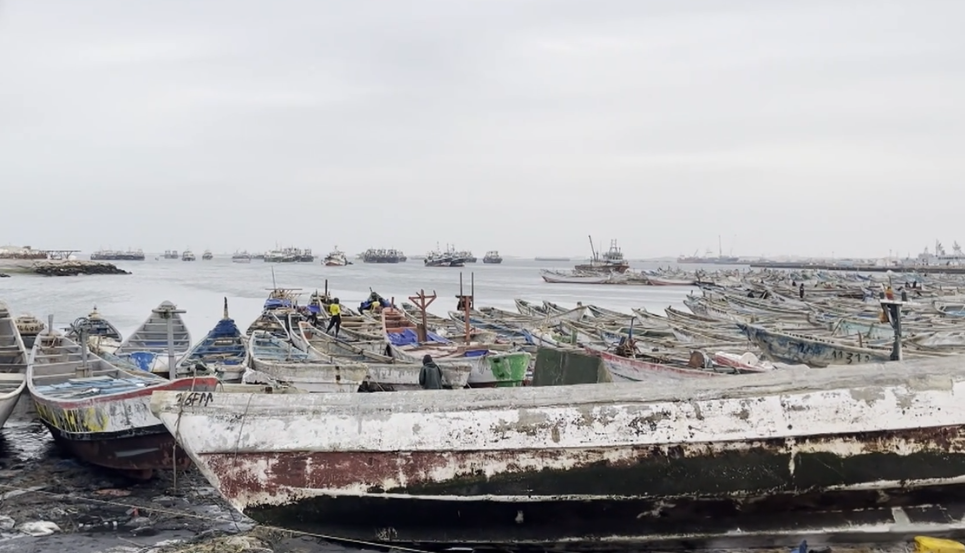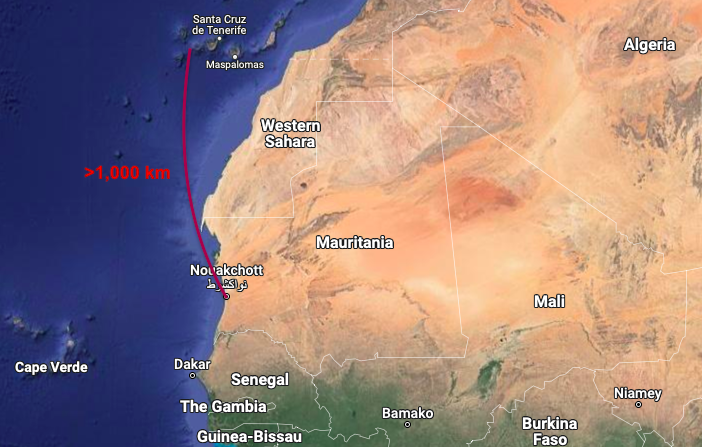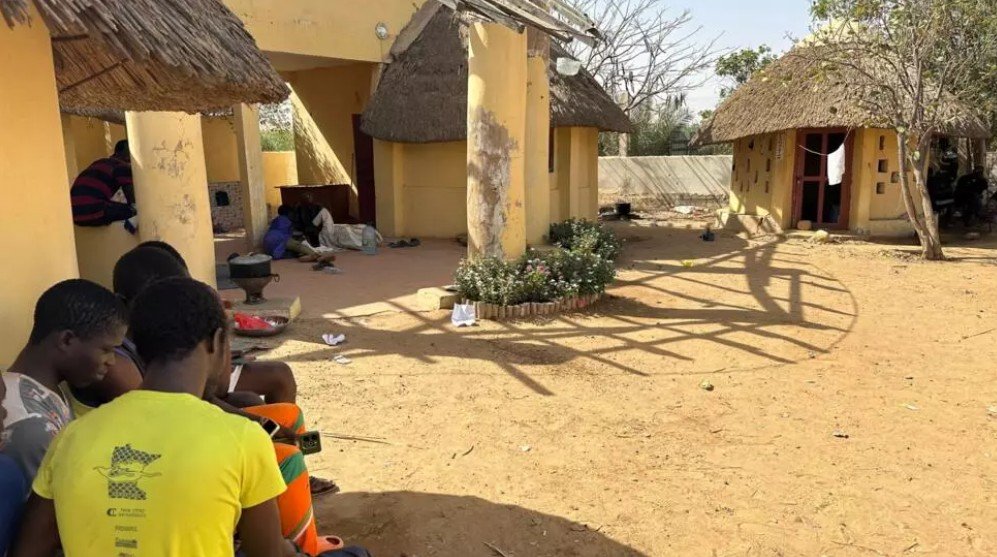Maritime patrols and controls have been stepped up in Mauritania, after migration agreements were signed with Spain and the EU following an increase in departures from the West African state. The Mauritanian government recently announced it dismantled almost 150 migrant trafficking networks in 2024.
Mauritania dismantled close to 150 international migrant trafficking networks in 2024 and dozens of similar criminal networks in the first quarter of this year, Spanish news agency EFE reported on Friday (May 2).
Speaking to parliament, Mauritanian Interior Minister Mohamed Ahmed Ould Lemine reportedly explained that the magnitude of the arrests indicates the extent of human smuggling as an organized, cross-border crime that has gradually established itself in Mauritania and the surrounding region.
Additionally, Lemine said that government security forces preempted more than 60 attempts to depart from the coastal city of Nouakchott and the capital, Nouadhibou. The parliamentarian did not specify the destination of the travelers. However, in recent months, there has been an increased number of irregular boat crossings from Mauritania towards the Canary Islands in Spain.
Atlantic Route: a maritime graveyard
Last year, the Spanish NGO Caminando Fronteras claimed a record 10,457 people are estimated to have died or disappeared attempting to reach Spain via irregular maritime routes. The numbers represent a 58 percent increase from the previous year, according to a report by the organization. The majority of the victims (9,757) were reportedly heading to Spain's Canary Islands.
Increased maritime patrols in the central Mediterranean began making that route less attractive to migrants. Connected and overlapping factors, such as the climate crisis, and the protracted political upheaval in West Africa, began pushing more and more people to attempt entering Europe via the Atlantic Route instead.

In response to the increase of irregular arrivals, the European Union announced a 210 million euro partnership with Mauritania last year. The funds were designed to include myriad ways of controlling irregular migration including by creating job opportunities in Mauritania, strengthening border controls in conjunction with the EU's border patrol force, Frontex, and cracking down on migrant smuggling networks.
The Atlantic Route, which is also sometimes referred to as the Northwest African route, refers to the ocean passages that connect several countries along the Northwest African coast (Morocco, Mauritania, Senegal, The Gambia, and some territories in Western Sahara) with the Canary Islands, Spain.

The strong winds and currents of the Atlantic can be fatal for the small boats that migrants typically board. These boats, which are often overcrowded and are not equipped with proper navigation systems, are prone to veering off course, some boats have even been discovered as far afield as the Caribbean and Brazil. Passengers on board risk dehydration and malnutrition, or being lost at sea.
Read AlsoMigration on the Canary Islands: A convenient scapegoat for social problems (Part I)
Stranded, at risk of deportation
Geographically on the African continent, Mauritania shares a 742-kilometer border with Senegal, and both countries lie on a key migration route towards Europe.
Recent reports indicate that Mauritania launched an expulsion of undocumented migrants who find themselves stranded in the country. Many were reportedly from neighboring West African countries such as Senegal and Mali, and have been reportedly sent back across the border.

Rights organizations have condemned the expulsions as "brutal," accusing Mauritania of acting as a "policeman for the European Union" in an effort to prevent migration northward.
Authorities reportedly defended the deportations, saying that they were carried out "in full respect of human rights and dignity." However, growing reports suggest that many deportees are being left in precarious conditions and stranded in towns like Rosso, a cross-border town between Mauritania and Senegal, where they have told reporters and NGOs of ill-treatment during their deportation.
Read AlsoMauritania: Migrants face round-ups, arrests and deportations
